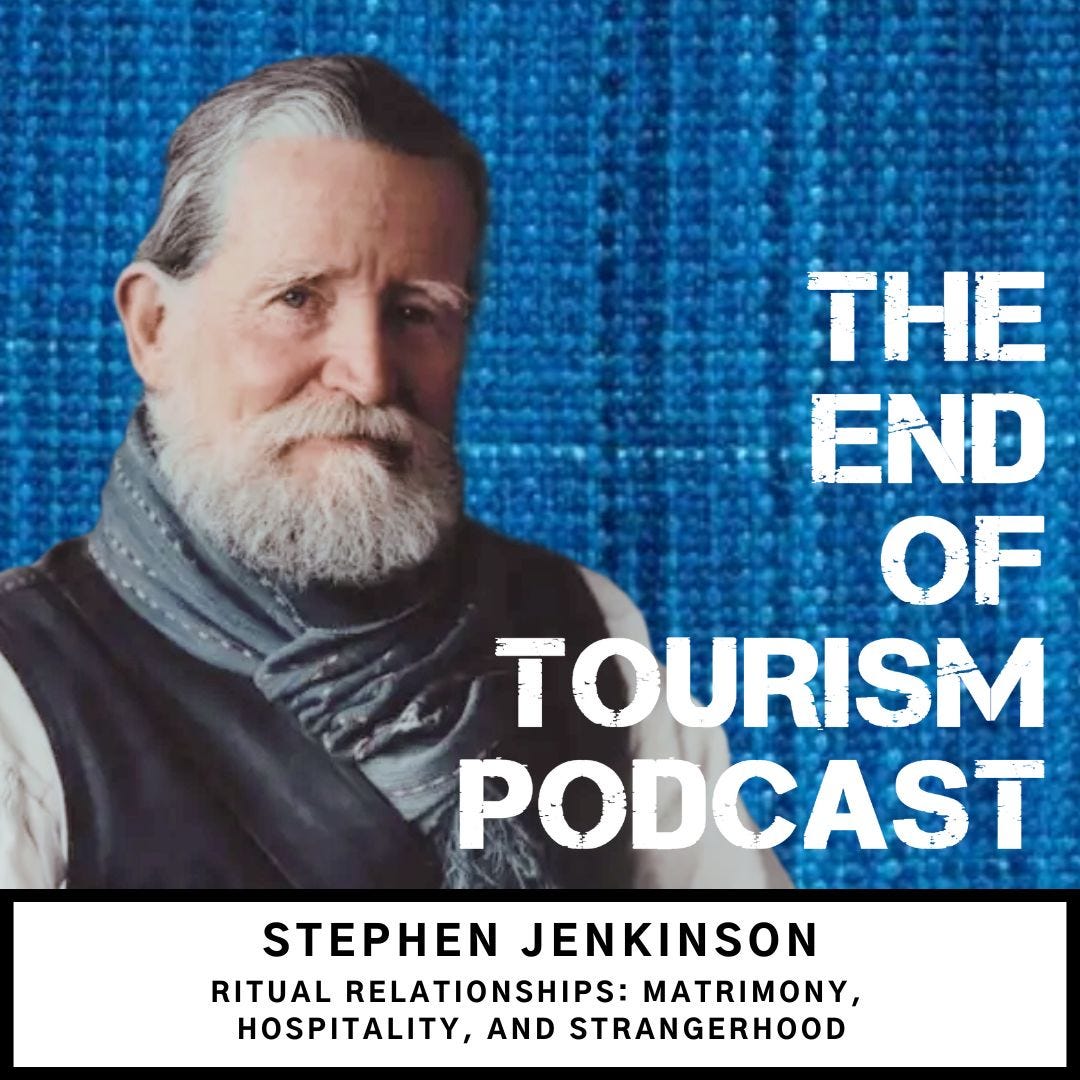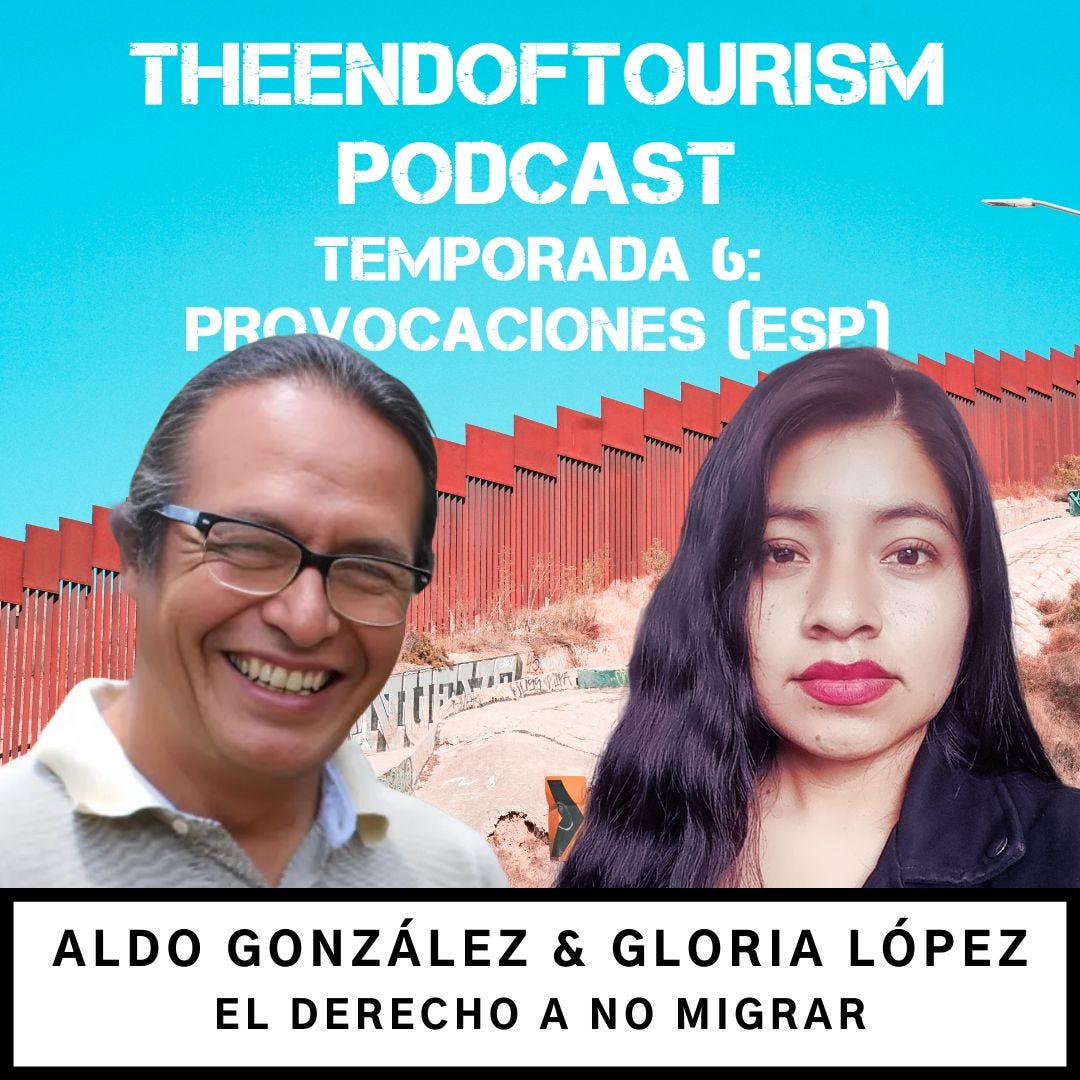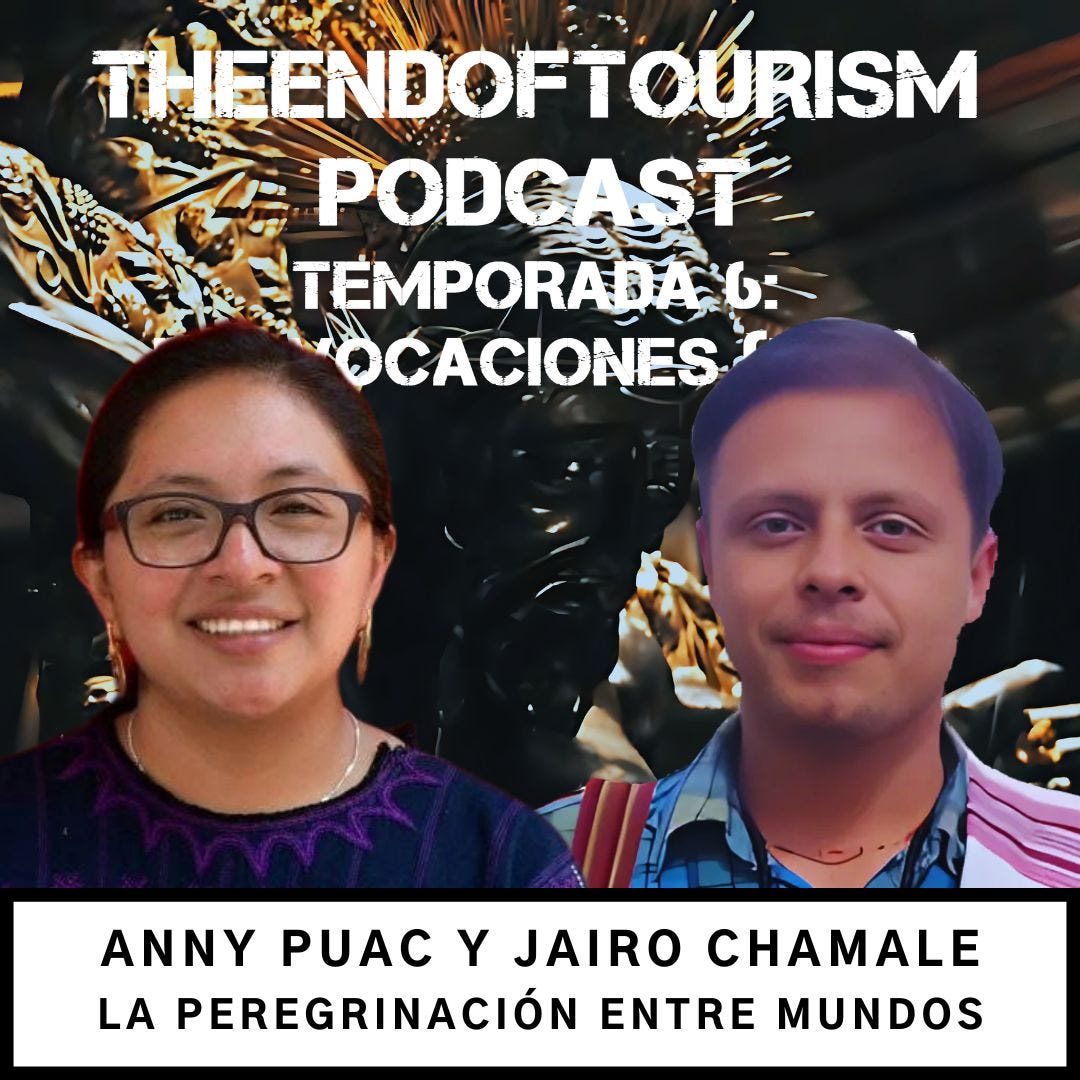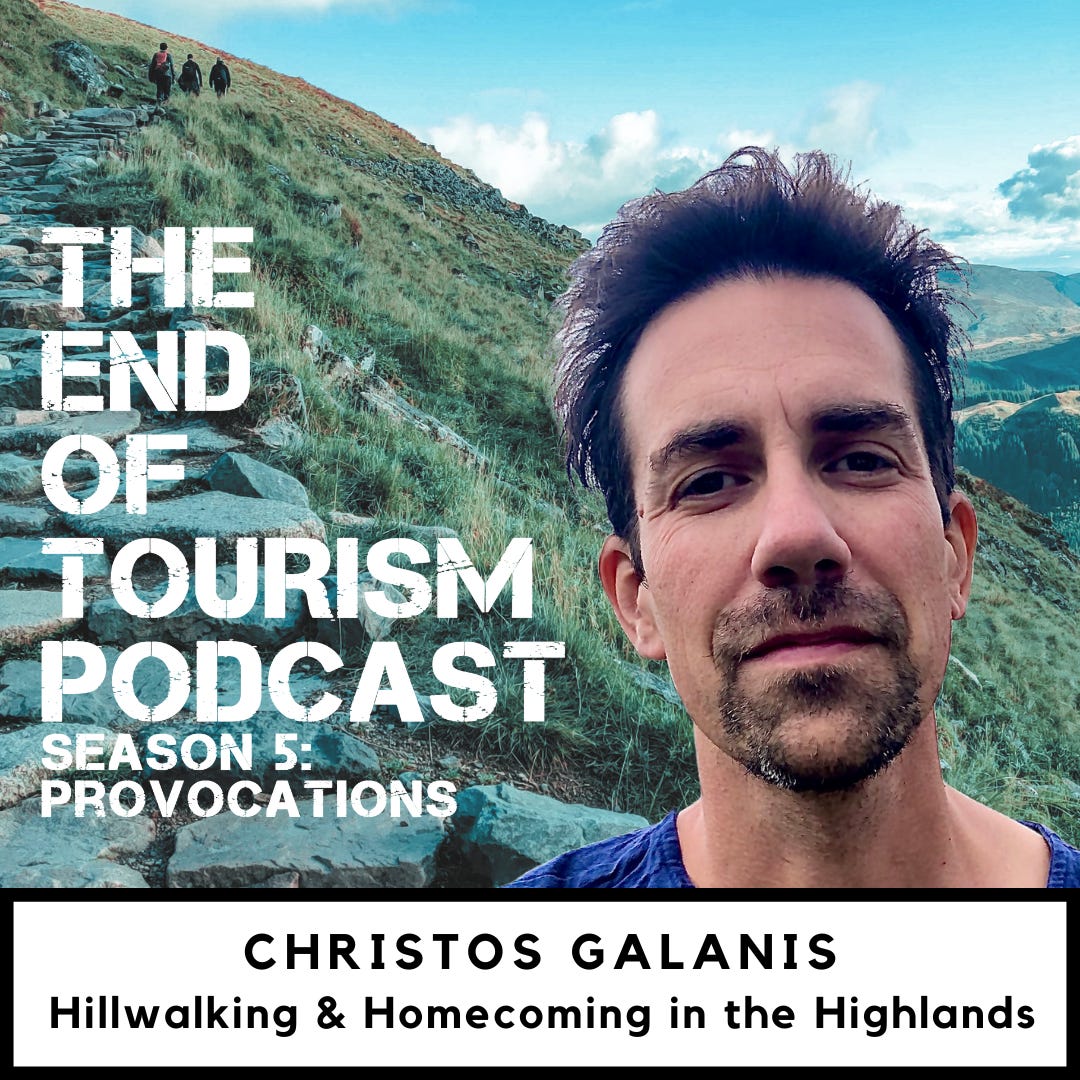S5 #8 | Unpacking the Last Tourist w/ Jesse Mann & Tyson Sadler (The Last Tourist)
Description
On this episode, my guests are Jesse Mann (editor-director) and Tyson Sadler (director), the brains behind the documentary The Last Tourist.
Jesse is both a picture editor and director whose professional work has spanned commercial, tv and film projects. The Last Tourist is her second feature film as editor. Her first film, as both editor and director, Material Success, screened internationally and won the Audience Choice at the Canadian Film Festival and Best Film at the Canadian Film Festival (2012). Most recently, she both directed and edited the online horror mini-series “The Confinement” (2021). She is a member of the Directors Guild of Canada and an associate member of the Canadian Cinema Editors. Jesse has an B.F.A. from Ryerson University's School of Image Arts.
Tyson Sadler is an explorer, traveller and award-winning filmmaker. He has directed video content and documentaries for The New York Times, Associated Press, and The Huffington Post. His films have been screened at festivals around the world including Tribeca Film Festival, South by Southwest, The Edinburgh Fringe Festival, and the Toronto International Film Festival. An early pioneer i virtual reality documentary, he has worked tirelessly to use cutting edge technology to tell stories that build empathy around causes such as climate change, forced migration, and human rights.
Show Notes:
The Film’s Inception
Industry Polarity
Regulating Travel
Addressing the Root Problems
Greenwashing Animal and Child Welfare Tourism
How the Wealth Gap Increased During COVID
What was Left on the Cutting Room Floor
Homework:
The Last Tourist Film Website | Instagram | Facebook
Jesse Mann's Website | Instagram
Tyson Sadler’s Website | Instagram
Transcript:
Chris: Welcome Jesse and Tyson to the End of Tourism Podcast.
Jesse: Thanks Chris for having us.
Tyson: Thanks for having us.
Chris: Thank you so much for joining me today to talk about your documentary film, The Last Tourist. So, it was released in 2022 to great reception.
And as you might imagine, many of my listeners have pointed me in its direction. And after watching the film, I found myself really grateful that people finally approached these themes in the medium of documentary filmmaking and with what seemed to be a budget to do justice to what those themes confront.
And so first I'd like to ask you two how The Last Tourist got started and what the inspiration behind the film's creation was and how did you decide to write a treatment for it?
Tyson: Ultimately, you know, I think the inspiration for The Last Tourist came from a combination of personal shared experience and a shared passion for travel and particularly responsible travel.
You know, in early 2018, I was approached [00:01:00 ] by the executive producers to write a treatment, for a short film around responsible tourism in the country of Peru. And through, you know, some follow up conversations, we sort of quickly realized that we had an opportunity because, a large scale documentary, on the subject of responsible tourism just didn't exist yet.
I mean, we have wonderful films out there which challenge our conversations with our relationship with climate change and our relationship with our food source like An Inconvenient Truth or like Food Inc., but we didn't at that time yet have a documentary which really challenged our perceptions of the global impact of the travel and tourism industry and so over conversations with with our team and the producers we quickly realized that we had a unique opportunity to make "An Inconvenient Truth" for the travel industry and in early 2018, we seized on that opportunity to explore the positive and negative impacts of tourism on destinations.
Jesse: And I think just to add to what Tyson was saying, I think originally [00:02:00 ] it started off as a short project and yourself and the executive producers who brought us together kind of pushed for it to become the large scale project that had ended up being filmed in 15 different countries or 16 with 400 hours of footage.
So, sometimes you don't know, especially myself as a co-writer and editor, when you come on to a project, in the initial stages, you think, "Oh, you know, this is wonderful. It sounds like a great project." I had been an avid traveler, lived in a few different countries over 20 years and I thought, yeah, this is a story that needs to be told, but I will say in no way in the beginning, did I ever think it was going to be, and I think Tyson didn't either, was it going to be such a huge project.
And you comment, Chris, on the expansiveness of the subject and the different kind of facets of the tourism [00:03:00 ] industry we were able to look at.
And really I have to say that I'm happy that we got to touch on all those points and to the chagrin of my personal sleep and Tyson's as well, but it started off small, I have to say that, and it grew into something tremendous that I think we're very proud of.
Tyson: It really was a natural progression of our desire to raise awareness about responsible tourism and its consequences. We had our world premiere, honestly, I think it was about two years ago now at the Vancouver International Film Festival, two years ago. And a little over two years ago, a little over two years ago.
And the film is still doing a festival run. Just last weekend, Jesse was at the the Innsbruck Film Festival and it's still been getting a wonderful response, great conversations around it. And we're streaming on platforms around the world, you know, Crave in Canada, Hulu in the U.S., Amazon Prime in other countries. I was just in French Polynesia and was able to find our film on Amazon Prime, which was really delightful [00:04:00 ] to see that.
Jesse: Yeah, it makes us happy as filmmakers to know that the story that we spent a lot of time trying to create in a way that we thought would connect with audiences worldwide is actually getting out there. And so it's really nice to be speaking to you on your podcast as well and kind of extend that out to potentially more people who haven't seen the film or some who just want to talk more about the topics.
Chris: And I wanted to ask you two, given the fact that the film was released, you know, still very much in a pandemic during the, the COVID 19 times what the reactions were given the fact that tourism had ground to a halt in that time you know, I received a lot of Mail regarding your film, like, ah, you have to check this out.
You have to watch this, right? And so a lot of people really excited about the project, about the film. But then I guess I'm also curious about[00:05:00 ] if there was much of an industry backlash in regards to the degree of sincerity perhaps around which the film exhibited these kind of deep and sometimes dire consequences that visit themselves on places and people in the name of tourism.
Tyson: Yeah. I think the reactions to the film have been in my experience, almost entirely positive. But people don't come to me with criticism, they come to me with congratulations, but I think there's a lot of individuals in the tourism industry and sponsors that have really welcomed our film, The Last Tourist, as a necessary and eye opening piece of work.
It sparked a lot of interesting conversations and prompted the industry to, in many ways, I think, reevaluate some of their practices. You
Jesse: If we back it up to when we were just when we were meeting with all of the different professionals that we interviewed across the different facets of the tourism industry, I mean, when you and I were writing the story, there were so [00:06:00 ] many different conflicting opinions on how to solve one issue that we still come across that sometimes when we meet those industry experts outside of, let's say, film audiences.
Because When we were writing it, we had to kind of decide which side of the coin we were going to follow through our story with, and whether it's a topic of let's say regulation, that was a topic that Tyson and I had a lot of conversations about when we were making the film because the industry in itself is kind of very polarized in terms of regulation.
There's some strong proponents within the tourism industry who want regulation. And then there's some who are very against it. And Tyson and I had a lot of conversations about that. And I think we still do when we meet certain industry professionals out there and I think that's a really important topic as well.
[00:07:00 ] Now that you are bringing up, post covid and the pandemic where we saw kind of what happens when things are shut down. You know, we see both the positive and the negative. I mean we mentioned it in the film, but almost every single person that we intervie
























